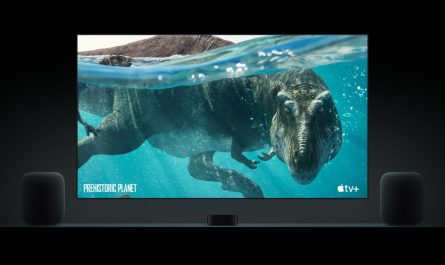
The Music app that comes built into every iPhone and iPad is responsible not only for storing your music collection from iTunes, it also houses iTunes Match and lets you access iTunes Radio, both of which can eat tremendous amounts of data. And that’s not counting any iTunes in the Cloud purchases you may make. If you aren’t careful, the Music app can quickly eat through your carrier’s data allowance. If this is an issue you’ve been running into, here are some ways you can curb how much data the Music app consumes!
1. Disable the Music app from using cellular data
The quickest and easiest way to keep the Music app for eating through your data plan is to restrict its access to only Wi-Fi. Doing this, you’ll still be able to listen to any content that is physically stored on your iPhone or iPad. You just won’t have access to anything that relies on data such as iTunes Match, iTunes in the Cloud purchases, and iTunes Radio.
Launch the Settings app on your iPhone or iPad. Tap on Cellular. Scroll down and under the Use Cellular Data For section, find Music and turn the setting to Off — the list should be in alphabetical order.

That’s it. The Music app should no longer consume any cellular data.
2. Sync music you listen to often instead of streaming it
If you don’t want to go nuclear but would still like to conserve some cellular data, syncing music you listen to often instead of relying on iTunes Match, is a great way to do just that. Simply sync over your favorite playlists, artists, and albums from your iTunes library on your computer. Or download them while on Wi-Fi with iTunes in the Cloud. This will minimize the amount of data your iPhone or iPad pulls. Then when you want to access music in iTunes Match, you’re only doing so for things you don’t listen to quite as often.
How to download music from iTunes in the Cloud 3. Only download music from iTunes in the Cloud over Wi-Fi
If you purchase a lot of music from iTunes, you may notice that you can download and delete it on demand. If you have fast data speeds, this makes it extremely convenient to download music and then delete it to save storage on your iPhone or iPad.
I know many people that do this on a regular basis. Just keep in mind that each time you download an album over cellular, it most likely consumes several megabytes of data at a time. So if at all possible, avoid downloading music when you’re on cellular and opt for Wi-Fi instead.
4. Limit how often you use iTunes Radio
Like any other streaming music service, iTunes Radio uses a data connection in order to serve up radio stations on your iPhone or iPad. If you use the service frequently, this is most likely the reason you’re using so much data within the Music app. Just like iTunes in the Cloud purchases, limiting iTunes Radio usage unless you’re on Wi-Fi is a huge way to mitigate how much data the Music app eats.
5. Disable automatic downloads for music
If you purchase music on your computer via iTunes or through another device regularly, your iPhone or iPad may be downloading it over cellular without you knowing it. Luckily, there’s a super easy way to prevent this behavior from happening by disabling music from downloading automatically. Or if you don’t want to completely disable automatic downloads, just disable the option to use cellular data for all automatic downloads. You may find you save even more data.
How to enable and disable automatic downloads for music, apps, books, and more Other tips for keeping data usage in the Music app under control?
If you’ve had the Music app eat large amounts of data on your iPhone or iPad, what was actually causing the issue? Was it something different than listed above? If so, be sure to let us know what and how you resolved the problem in the comments!
![]()
